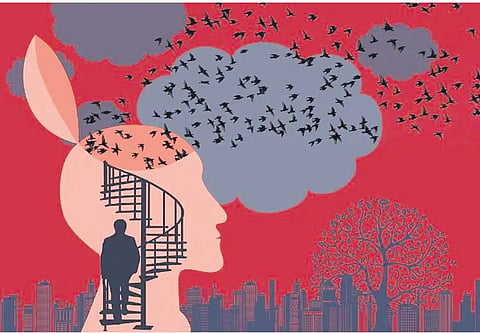

BENGALURU: Most of the bestselling books in the psychology category are on topics most researched by psychologists: success, happiness, habit, choice, decision-making and influence. Often the word ‘success’ is used on book covers to entice readers to buy the book! Personally, I feel success is overrated, so I tend to avoid books on this topic, which is over researched and under implemented. Most books on success come to the same conclusion with no new insight, so if you’ve read Malcolm Gladwell’s Outlier and Angela Duckworth’s Grit you can skip all the others.
To be clear, I am not talking about books on psychiatry, which is different from psychology. Psychology concerns the mind and human behaviour while psychiatrists practise as medical doctors and use their clinical experience to treat disorders using medication and psychotherapy.
In The Lucifer Effect by Phil Zimbardo, he talks about why good people behave in evil ways. He details how situational forces and group dynamics can work in concert to make monsters out of decent men and women. On the other hand, Noise by Daniel Kahneman is a revolutionary exploration of why people make bad judgments and how to make better ones. Kahneman’s Thinking Fast & Slow published in 2011 should be on the top of everyone’s reading list. He explains in detail the two systems – one fast and one slow – that control how we think and act.
Robert Cialdini’s 1984 book Influence: The Psychology of Persuasion is considered a classic and is a must read for all sales and marketing professionals. Cialdini explains exactly what makes people say the word ‘yes’ and how you can apply this understanding to any situation in your own life. He spent three years ‘undercover’, applying for and training at used car dealerships, fund-raising organisations, and telemarketing firms to observe real-life situations of persuasion. Dan Ariely’s Predictably Irrational is one of the interesting books on the popular topic of how we make decisions, though recent accusations of falsifying data have clouded the research. Challenging the misconception that humans naturally act in rational ways, Ariely explains that all the decisions we make are systematic and predictable, and therefore certain ‘senseless’ behaviours that people exhibit aren’t senseless at all.
Though there are tonnes of books on happiness, the one that I enjoyed the most is psychologist Mihaly Csikszentmihalyi’s classic Flow. It investigates ‘optimal experience’ – a state of consciousness called flow, during which people typically experience deep enjoyment, creativity, and a total involvement with life. In this new edition of his groundbreaking work, Flow: The Psychology of Optimal Experience, Csikszentmihalyi demonstrates how this positive state can be controlled and not just left to chance. He teaches how, by ordering the information that enters our consciousness, we can discover true happiness and greatly improve the quality of our lives.
Finally, no list of psychology books can be complete without Sigmund Freud’s Civilization And its Discontents. It explores the important clash between the desire for individuality and the expectations of society. Considered one of Freud’s most important and widely read works, it was described in 1989 by historian Peter Gay as one of the most influential and studied books in the field of modern psychology.
Many people used to consider reading psychology a waste of time, but that seems to have changed. Knowing why I buy things that I don’t need; why some are introverts and some extroverts; or how I can make better decisions is now possible because books on psychology are able to explain it in layman’s terms. Over the past few decades, I have observed how psychology books have become more accessible to the common reader.
(The writers’ views are their own)
(VR Ferose is a technologist based in Silicon Valley who is gently mad about books)